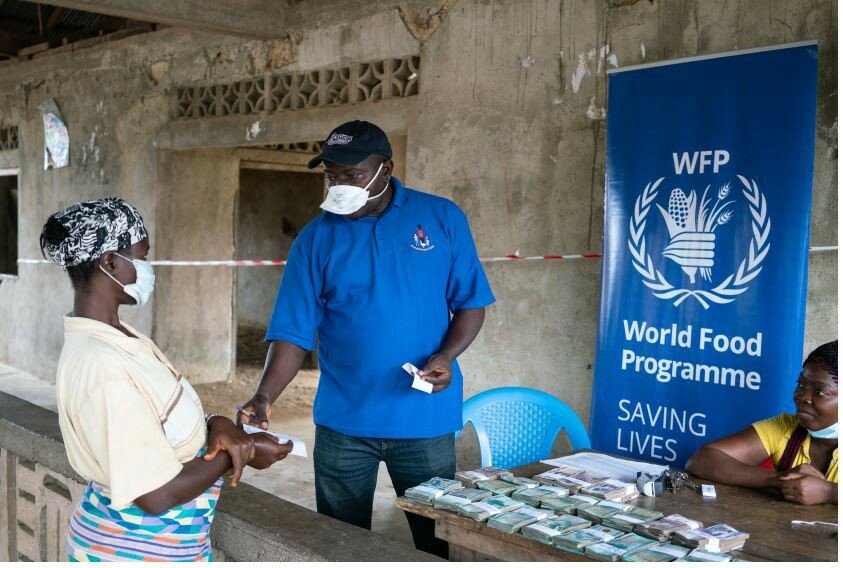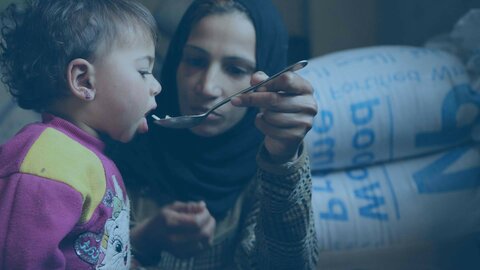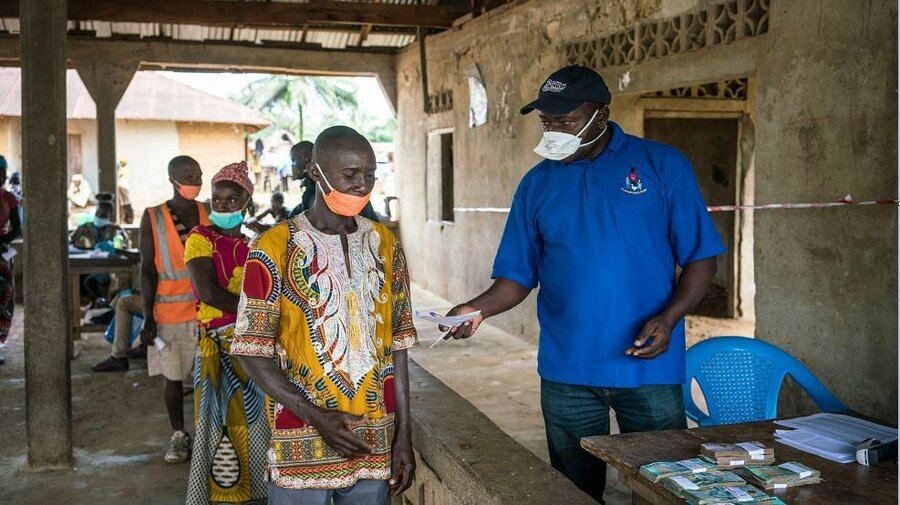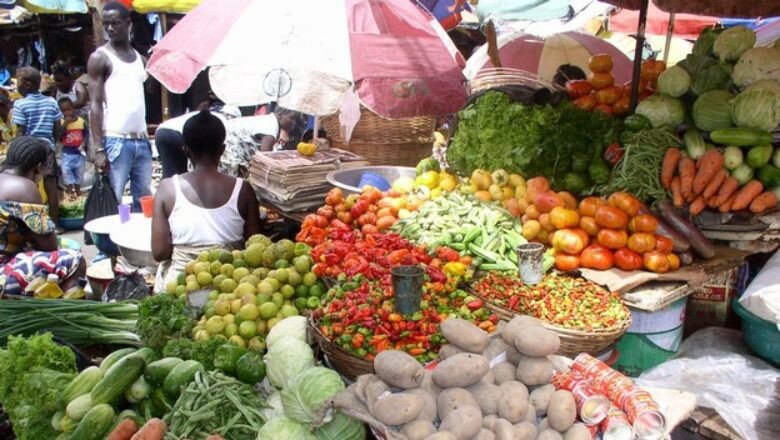Sierra Leone: How cash assistance is helping to secure peace

Mining companies and local communities have been at loggerheads over resources in southern Sierra Leone. The Peace Building Fund Project, co-implemented by the World Food Programme (WFP) and the UN Development Programme (UNDP), works to reduce tensions while providing social safety nets that have limited the impact of the coronavirus outbreak.
In Sierra Leone, the relationship between Socfin Agricultural Company and landowners in Sahn Malen chiefdom hasn't always been a cosy one. The same can be said for the Sierra Rutile Mining Company in the Mayamba district. Land degradation, non-inclusive processes of awarding and managing extraction contracts, the marginalization of women and youths, and loss of livelihoods are among the issues behind conflicts between communities, government and private companies in the south of the country.
Donate Now | United Nations World Food Programme

Under the Peace Building Fund Project, problems are resolved through an integrated approach of building the capacities of institutions and dialogue platforms that promote peaceful relations between communities, government and private companies, empowering women and youths through agricultural asset-creation activities, with technical and vocational training to enable local women and youth to benefit from company employment opportunities.
‘Empowering women and youths to make sure they have food to put on the table is essential to building peace and stability.'
With technical and supervisory support from the Ministry of Agriculture and Forestry (MAF) district offices of Moyamba and Pujehun, the World Food Programme (WFP) is rehabilitating and developing Inland Valley swamps in 31 supported communities as a way of creating alternative livelihood opportunities.
"Empowering women and youths to make sure they have food to put on the table is essential to building peace and stability," says Housainou Taal, WFP Country Director for Sierra Leone.
WFP supports the provision of improved seeds (by Moyamba and Pujehun Ministry of Agriculture and Forestry district offices) and agricultural tools, while training in improved farming techniques is provided by community-youth contractors.

Mariama Kawa, a mother of five, at Pewa village in Makpele chiefdom, explains why cash support is so important to her.
"My husband and I could only have dreamt of having this much money at a time," she says. "The money I received contributed to reducing tensions at home and enabled my family to have enough food to eat. The first money I received enabled me to grow groundnut and to cultivate my personal swamp."
Like Mariama, more than 9,200 farmers and their families in Makpele and Sahn Malen chiefdoms in the Pujehun district and Upper and Lower Banta chiefdoms in the Moyamba district have benefitted from cash payments from WFP. Each of the 1,854 people engaged in agricultural asset creation activities received a total of US$174 for a period of 60 working days.
Offsetting pandemic restrictions
Measures put in place by the Government in order to break the chain of COVID-19 transmission have limited supply of labour while interrupting transport and access to markets, resulting in food loss and waste.

On the demand side, a loss of purchasing power caused by the disease changed people's eating patterns, resulting in poorer nutrition. Panic purchases of food broke the supply chain and caused localized price hikes.
Alhaji Massaquoi, another beneficiary, recounts the impact of the COVID-19 pandemic on their food security situation.
"This support has come at a time when the COVID-19 lockdowns and movement restrictions badly affected our food situation as the cost of food items skyrocketed," says Alhaji.
With 63 per cent of the population, or 5.1 million Sierra Leoneans estimated to be food-insecure, the latest Emergency Food Security Monitoring System report by WFP shows further deterioration in the food security situation in the country compared to 47.7 percent for January. This is being exacerbated by the economic downturn and COVID-19 related restrictive measures including lockdown, movement restrictions, and market closures.
"This is the hunger period when every penny counts," says Alhaji. "Our situation could have been far worse without this cash payment".


